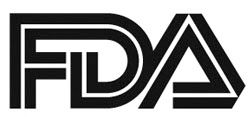ODAC Hearing Scheduled to Discuss CTL019 in Relapsed/Refractory B-cell ALL
The FDA has scheduled a public hearing of its Oncologic Drugs Advisory Committee (ODAC) to address a biologics license application (BLA) for tisagenlecleucel-T (CTL019) for patients aged 3 to 25 years with relapsed/refractory B-cell acute lymphoblastic leukemia (ALL). The hearing is planned for July 12, 2017.

The FDA has scheduled a public hearing of its Oncologic Drugs Advisory Committee (ODAC) to address a biologics license application (BLA) for tisagenlecleucel-T (CTL019) for patients aged 3 to 25 years with relapsed/refractory B-cell acute lymphoblastic leukemia (ALL). The hearing is planned for July 12, 2017.
Tisagenlecleucel-T became the first CAR T cell therapy to go into regulatory review when it won priority review status from the FDA in March. Under the priority review program, the drug is under review for only 6 months compared with the standard 10-month evaluation. The accelerated review timeline follows a breakthrough therapy designation from the FDA for tisagenlecleucel-T in ALL.
Novartis, the company developing the chimeric antigen receptor (CAR) T-cell therapy in partnership with the University of Pennsylvania, based its BLA on findings from the global, phase II ELIANA study, along with a multicenter trial conducted in the United States and a single institution trial. In findings presented at the 2016 ASH Annual Meeting for the first 50 patients enrolled ELIANA, tisagenlecleucel-T was associated with an 82% complete remission (CR) or CR with incomplete blood count recovery (CRi) rate, 6-month overall survival (OS) was 89% (95% CI, 76-95), and disease-free survival rate was after a median follow-up of 4.3 months%.
Researchers enrolled patients into the ELIANA study at 25 centers in the United States, Europe, Asia, and Australia. At the time of the assessment, there were 81 participants in the study. Five patients were awaiting infusion and 14 discontinued prior to infusion due to deaths (n = 5), manufacturing failures (n = 5), and adverse events (n = 3).
All patients received lymphodepleting chemotherapy prior to infusion, which consisted of 30 mg/m2daily fludarabine for 4 doses and 500 mg/m2daily cyclophosphamide for 2 doses. The targeted dose of each tisagenlecleucel-T infusion was 2.0 to 5.0 x 106kg for patients weighing ≤50 kg and 1.0 to 2.5 x 108for those weighing >50 kg.
The median age of patients was 12 years (range, 3-23), and 55% were male. More than half (56%) had received a prior stem cell transplant, and the median number of prior lines of therapy was 3 (range, 1-8). Most patients (79%) had relapsed ALL, 11% had refractory disease, and 10% had primary refractory disease.
The CR rate was 68%, and 14% of patients had a CRi. All patients with a CR/CRi also tested negative for minimal residual disease (95% CI, 69-91;P<.0001).
Forty-four patients remained on-study at the time of the assessment. Six discontinued follow-up due to death, 5 due to relapse, 5 started a new therapy while in CR, and 2 left the study because of patient or guardian decision. Two patients died within 30 days of treatment, 1 from ALL and 1 due to cerebral hemorrhage. There were no deaths related to cytokine release syndrome (CRS) and researchers observed no cases of cerebral edema.
Most patients (71%) experienced adverse events (AEs) during the first 8 weeks of treatment. Researchers believe 68% of those AEs to be treatment related. After 8 weeks, rate of serious AEs dropped to 17%, just 2% of which were related to tisagenlecleucel-T. The rate of treatment-related grade 3/4 AEs declined from 74% to 10% over the same period.
Roughly 4 in 5 patients experienced CRS, of which 21% was grade 3 and 27% was grade 4. CRS occurred within 3 days of treatment and lasted for a median of 8 days. Most patients (51%) were treated with anti-cytokine therapy, followed by high dose vasopressors (33%), invasive ventilation (20%), and dialysis (12%).
Other grade 3/4 AEs observed in ≥10% of patients included cytopenias that did not resolve by day 28, infections, transient neuropsychiatric events, and tumor lysis syndrome.









